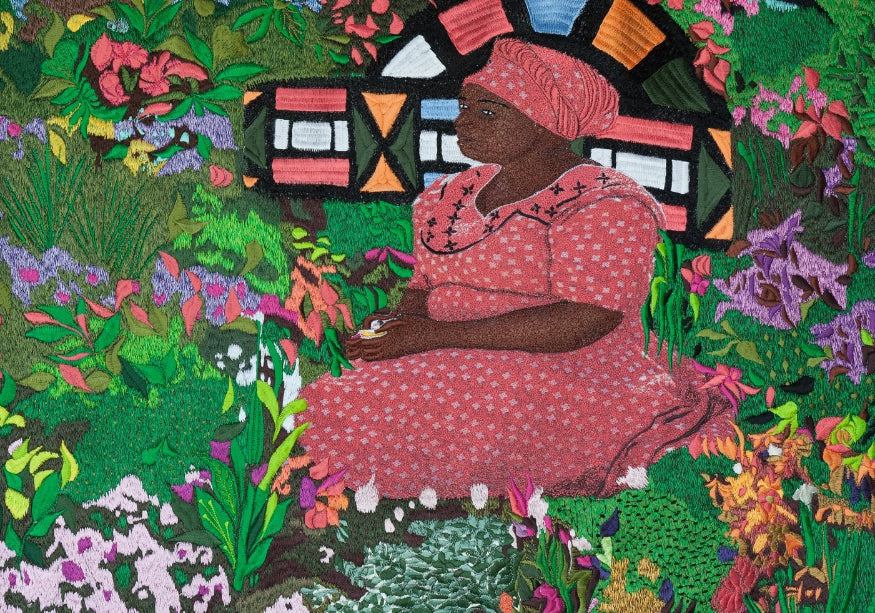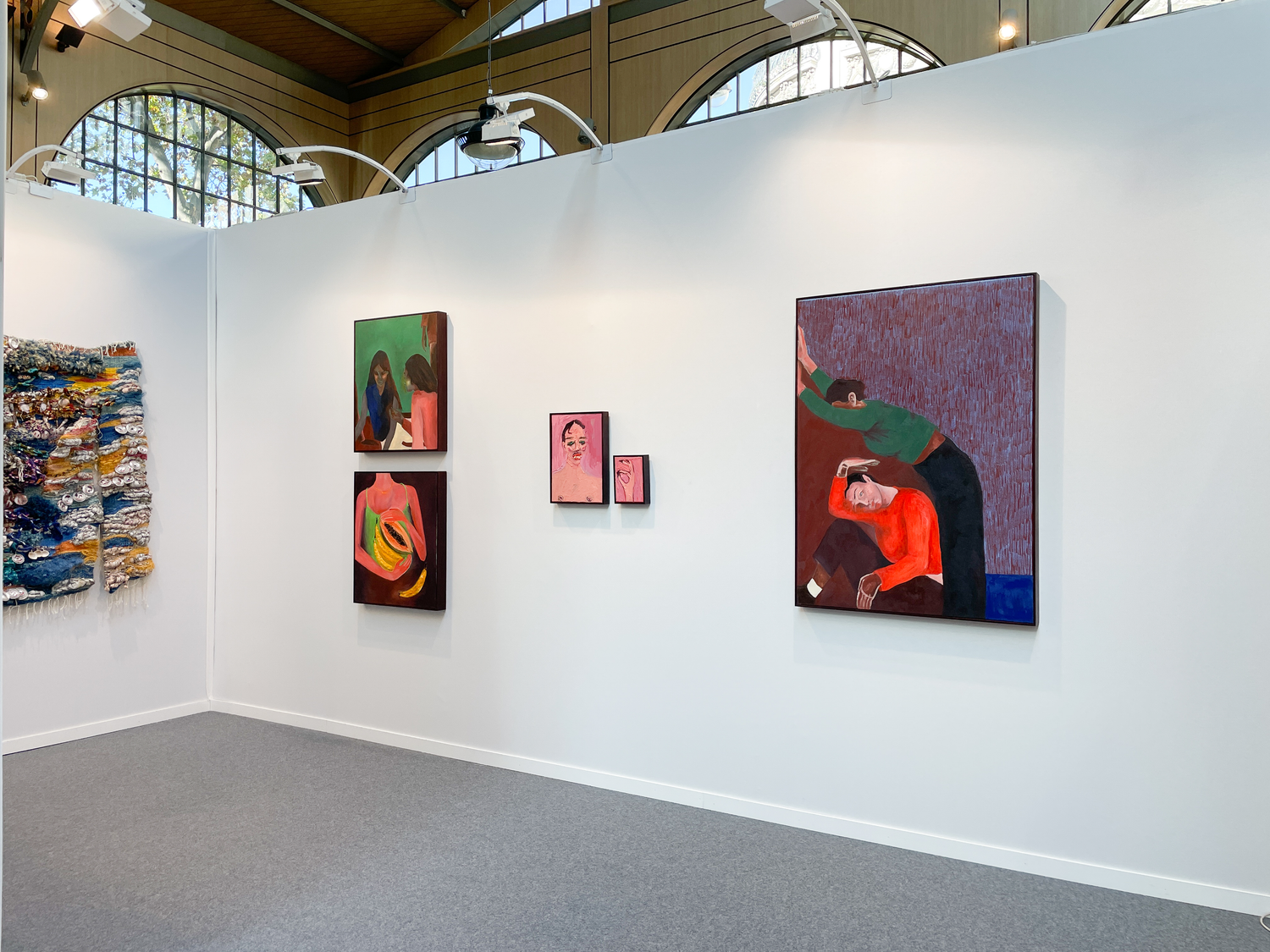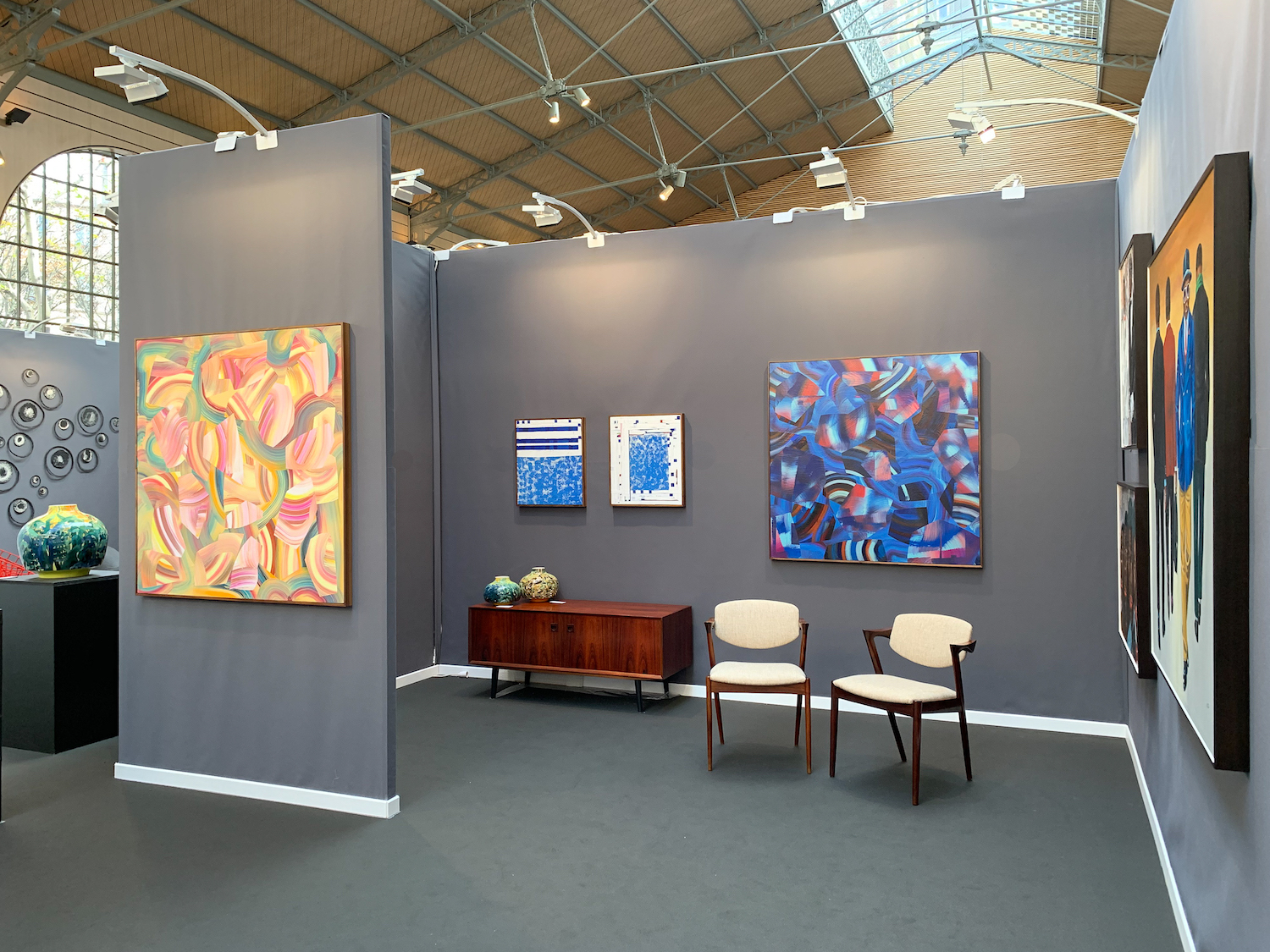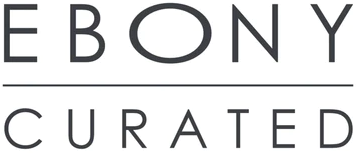Collection: AKAA Paris 2017
Also Known As Africa
Paris, France
10.11.17 - 12.11.17
Participating Artists:
Kaloki Nyamai
Zemba Luzamba
Wole Lagunju
___
Kaloki Nyamai
Kenyan born artist Kaloki Nyamai (b. 1985) explores the parallels between the past and the present through richly-layered, multimedia works. Drawing heavily on the stories of the Kamba community narrated to him by his grandmother, Nyamai explores how history and identity are intertwined and how this has informed the identities of people living in present day, post-colonial Kenya. At the core of his practice Nayami battles with what it means to be black in white spaces and the textured surfaces of his works reflect this struggle in their very construction. The paint is laid on heavily and becomes scarred with cracks as it dries and the additional layers of ripped canvas that are pasted onto the original surface create a rich palimpsest of colour and texture. Another recurring element in Nyamai’s work are the rectangular elements that surround his subjects implying their isolation and entrapment. These recurring formal elements in his work highlight his interest in the repetitive nature of human behaviour and through his work Nyamai questions the behaviours of people in post-colonial societies positioning these difficult questions within the constructs of a skewed power dynamic.
Zemba Luzamba
Congolese painter, Zemba Luzamba (1973 -) interrogates and satirises social and political power structures in Africa. A contemporary realist, Luzamba's paintings hover on the border of satire, at once appearing to mimic the colonial lifestyle of the postcolonial elites while simultaneously bringing it into question. Is this pure observation, aspiration or critique? Although born and raised in the DRC, Luzamaba moved to South Africa to pursue his career as an artist and this experience of migration has allowed him intimate and sympathetic view of migrant communities which has informed many of his works over the past 10 years. Situating his subjects in bold fields of colour which disassociate them from concrete spaces and times allows Luzamba to portray certain situations as universal ideas, giving the viewer the freedom to interpret these scenes with in a way that is relevant to their own contexts. This combined with his skilful observation of body language emphasizes the immediacy and proximity occupied by the viewer to his work.
Wole Lagunju
Nigerian painter Wole Lagunju’s (b. 1966) hybrid paintings juxtapose traditional Gelede masks with images of modern women in the Western world. Lagunju’s works are richly painted images that re-imagine and transform cultural icons appropriated from both the Dutch Golden and Elizabethan ages, interspersed with elements from the Western world in the fifties and sixties. Lagunju’s cultural references, mined from the eras of colonisation and decolonisation of the African continent, critique the racial and social structures of the 19th century whilst evoking commentaries on power, femininity and womanhood. Lagunju uses these unusual combinations to redefine the way the forms and philosophies of Yoruba visual art are seen, his boldly painted figures become contemporary redefinitions of traditional Yoruba visual art.











